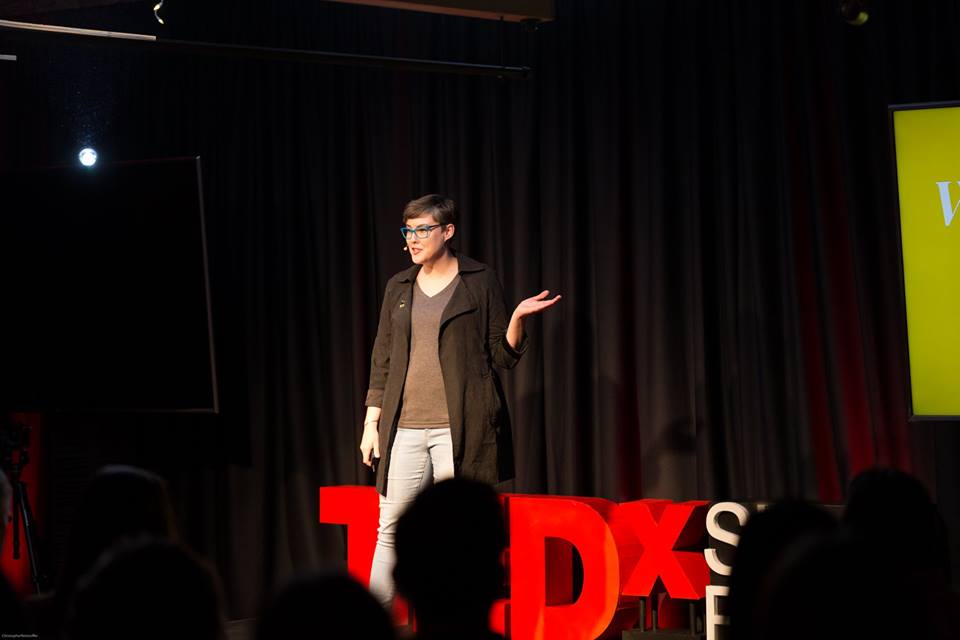Where do you set the bar?
This time last year (in 2019), I was giving my very first TEDx talk.
It was without a doubt the most difficult thing I had ever done. To this day, it still is.
(*Disclaimer: I say this as a person who has never birthed or fostered children. Parents, you are superheroes.)
I was a seasoned national speaker when I applied to give the TEDx talk, but it was still somehow… different.
I loved giving talks around the country, but being a TED speaker was a career-long dream of mine. It was something I desperately wanted. I saw it as a once-in-a-lifetime experience and I didn’t want to screw it up.
It HAD to be perfect. It had to prove to the selection committee, my audience, and THE WORLD that I was worthy of standing on that red circle.
I wrote and re-wrote my talk nine (9) times. This wasn’t just nine different drafts of the same talk — this was nine different talks, though all on the same topic.
On the night of the dress rehearsal (the night before the event), I got up onstage, blinked a couple times in the bright lights, and felt the panic begin to rise. My mind then went absolutely blank.
“I’m sorry, I can’t do this,” I told them, and in a flush of mortification ran offstage and took my seat.
It felt melodramatic. I had never done anything like that before in my life. But I did it — I ran offstage. I stayed to support the other speakers, but I didn’t get back onstage that evening.
That night, I completely rewrote my speech one final time, pushing myself incredibly hard, wringing out my brain like a nearly dry sponge. I might have overdone it a bit, but at least I was finally satisfied-ish with my talk.
The talk went wonderfully. But I’ll never forget the feeling of “not enough” that drowned me in panic the evening before — the “not good enough”, “not smart enough”, “not revolutionary enough”.
In preparing for the talk, I had watched a lineup of the “25 best TED talks ever given”. I did this in order to get a feel for the presentation style and structure, but what I ended up doing was establishing a bar for comparison. For perfection.
I have a LOT of ambition (go go Slytherin) and a lot of drive to be the best. Maybe you do, too. I think it’s usually an okay trait to have.
But even if you’re competitive, it’s good to remember to be reasonable. You’re not competing against Simon Sinek and Brene Brown. This is not a contest and there is no prize. Perfection does not exist and “good” is subjective. You’re competing against your own past performances. Right?
But what, then, is enough? How much better does better need to be?
I never want to dampen my ambition, or shoot for anything less than the best I am capable of.
But sometimes, to realize what you’re capable of, you need to push yourself past what’s comfortable and even reasonable… right?
What do you think?
P.S. You can watch the final version of my TEDx talk here:
Looking to start your own podcast?
Looking to start — or improve — your podcast in a couple simple steps? I'd love to share my FREE Printable Podcast Roadmap with you! 🎙️✨
This roadmap is the perfect starting point for new podcasters, and a great checklist for podcasting veterans! Now is the PERFECT time to re-evaluate and re-assess what success means for your show, and this handy tool will help you do just that.

